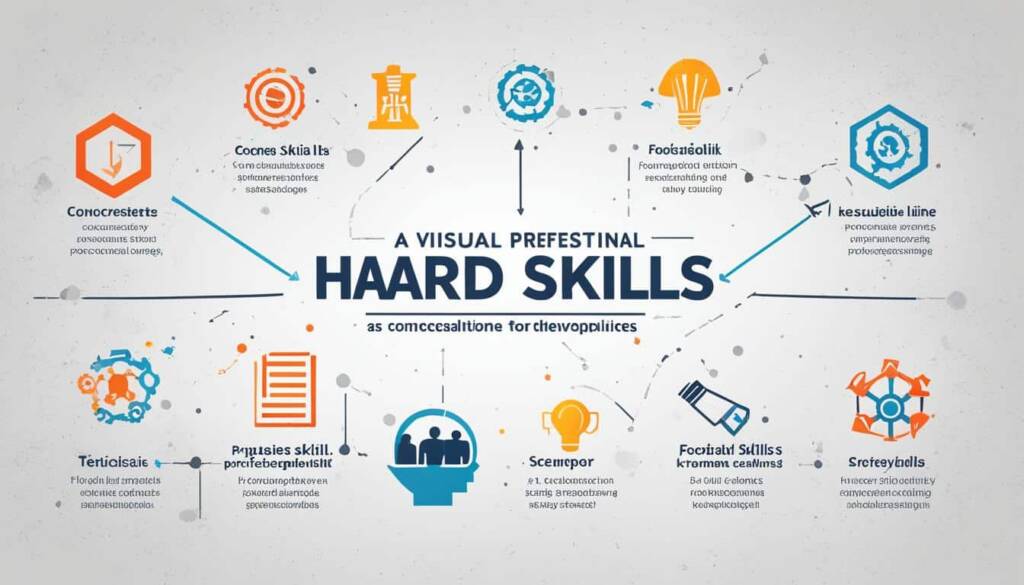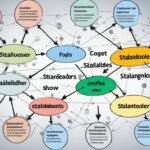Table of Contents
In today’s competitive job market, having the right skills is crucial for success. While soft skills such as communication and teamwork are important, hard skills play a significant role in determining employability and job performance. In this article, we will explore the definition of hard skills and provide examples that can help you understand their significance.
What are Hard Skills?
Hard skills refer to the technical abilities and specific knowledge required for a particular job or industry. Unlike soft skills, which are more subjective and related to personal attributes, hard skills are quantifiable and can be learned through education and experience. Employers often seek candidates with relevant hard skills as they are tangible indicators of proficiency and competence.
Examples of Hard Skills
Hard skills encompass a wide range of disciplines and can vary depending on the industry and job role. Here are a few examples of commonly sought-after hard skills:
- Computer software knowledge
- Graphic design
- Data analysis
- Project management
- Marketing
- Copywriting
- Computer programming
- Foreign languages
- Search engine optimization (SEO)
These are just a few illustrations of hard skills in different domains. It’s essential to emphasize that the specific hard skills required may vary based on the nature of the job and industry.
By developing and showcasing your hard skills, you can demonstrate to employers that you have the necessary expertise and qualifications to excel in their organization. In the next section, we will delve deeper into the different types of hard skills you may encounter in various professional environments.
Types of Hard Skills
In today’s competitive job market, it is crucial to possess the right hard skills that align with industry requirements. Employers often specify the essential hard skills they seek in job descriptions, emphasizing the need for candidates with specialized knowledge and expertise. Let’s explore some common types of hard skills:
“Hard skills allow you to craft a career of your making, filled with opportunities and growth.”
1. Computer Software Knowledge
Proficiency in various software applications and tools is a valuable hard skill across industries. From word processing software to advanced data analytics tools, staying updated with the latest technology enhances productivity and efficiency.
2. Graphic Design
Designing visually appealing graphics and layouts is a sought-after hard skill for creative roles. Adobe Creative Cloud, Photoshop, Illustrator, and other design software enable professionals to create captivating visuals that effectively communicate messages.
3. Data Analysis
With the increasing importance of data-driven decision-making, data analysis has become a critical hard skill. Proficiency in statistical analysis, data visualization, and tools like Microsoft Excel and Tableau helps professionals extract insights and make informed business decisions.
4. Project Management
Effective project management ensures timely completion of tasks, resource allocation, and goal achievement. Skills like planning, organizing, and prioritizing tasks, along with knowledge of project management software, are highly sought-after in various industries.
5. Marketing
Marketing encompasses a wide range of hard skills, including market research, campaign management, content creation, and social media advertising. Proficiency in digital marketing tools, data analysis, and consumer behavior analysis is essential for success in this field.
6. Copywriting
The ability to craft compelling written content is a valuable hard skill in many industries. Copywriting involves creating engaging copy for advertisements, websites, blogs, and other marketing materials, effectively communicating messages to target audiences.
7. Computer Programming
Proficiency in programming languages like Python, Java, or HTML/CSS is essential for software development and web design roles. Understanding programming concepts and problem-solving skills are highly valued in the tech industry.
8. Foreign Languages
In a globalized business environment, fluency in foreign languages is in demand. Being able to communicate and work effectively with international clients, partners, or colleagues is a valuable hard skill that opens doors to new opportunities.
9. Search Engine Optimization (SEO)
As online visibility becomes crucial for businesses, SEO knowledge is highly sought after. Understanding keyword research, on-page and off-page optimization techniques, and content optimization helps improve website rankings and attract organic traffic.
Top Trending Hard Skills in 2022
| Rank | Hard Skills |
|---|---|
| 1 | Customer Service |
| 2 | Sales |
| 3 | Accounting |
| 4 | Business Development |
| 5 | Marketing |
| 6 | Digital Marketing |
| 7 | Sales Management |
| 8 | Finance |
| 9 | Social Media |
| 10 | Sales and Marketing |
| 11 | Financial Analysis |
| 12 | Engineering |
| 13 | Social Media Marketing |
| 14 | Structured Query Language (SQL) |
These trending hard skills are in high demand across various industries and highlight the needs of today’s job market. Staying updated with the latest advancements and acquiring these skills can significantly enhance career prospects.
Acquiring Hard Skills
Acquiring hard skills is essential in today’s competitive job market. There are several effective methods to acquire hard skills and enhance your professional expertise.
One way to acquire hard skills is through taking online or in-person classes. Many reputable institutions offer courses and training programs that cater to specific industries or skill sets. These courses provide structured learning opportunities and allow individuals to gain in-depth knowledge and practical skills.
Participating in training programs and gaining experience through internships or on-the-job training is another valuable way to acquire hard skills. These hands-on experiences allow individuals to apply their knowledge, learn from industry experts, and develop the necessary skills for their chosen field.
In addition, many employers provide leadership training or team-building programs for their employees. These programs not only enhance hard skills but also foster personal and professional growth. Taking advantage of these training opportunities can significantly contribute to career advancement.
Certifications, degrees, and licenses are also crucial in validating proficiency in specific hard skills. These credentials serve as tangible proof of expertise and can differentiate individuals in the job market. Continuous learning and upskilling are essential to stay competitive and adapt to evolving industry trends.
By leveraging a combination of these methods, individuals can effectively acquire hard skills and position themselves as valuable assets to prospective employers. The journey of acquiring hard skills is ongoing, and it is important to stay committed to continuous learning and development to thrive in the ever-changing job landscape.
FAQ
What are hard skills?
Hard skills are technical skills that are required for a job and can be learned through education and experience.
How are hard skills different from soft skills?
Hard skills are different from soft skills, which are behavioral skills.
Why are hard skills important for employers?
Hard skills can be quantified and are important for employers when hiring.
Can you provide examples of hard skills?
Examples of hard skills include computer software knowledge, graphic design, data analysis, project management, marketing, copywriting, computer programming, foreign languages, and search engine optimization (SEO).
What types of hard skills are common?
Some common types of hard skills include computer software knowledge, graphic design, data analysis, project management, marketing, copywriting, computer programming, foreign languages, and search engine optimization (SEO).
What are the top trending hard skills in 2022?
According to LinkedIn, the top trending hard skills in 2022 include customer service, sales, accounting, business development, marketing, digital marketing, sales management, finance, social media, financial analysis, engineering, social media marketing, and structured query language (SQL).
How can hard skills be acquired?
Hard skills can be acquired through various methods such as taking online or in-person classes, participating in training programs, gaining experience through internships or on-the-job training, and self-learning.
Do certifications, degrees, and licenses prove proficiency in hard skills?
Yes, certifications, degrees, and licenses can serve as proof of proficiency in specific hard skills.
What can help individuals stay competitive in the job market?
It is important to continuously build and develop hard skills to stay competitive in the job market.













